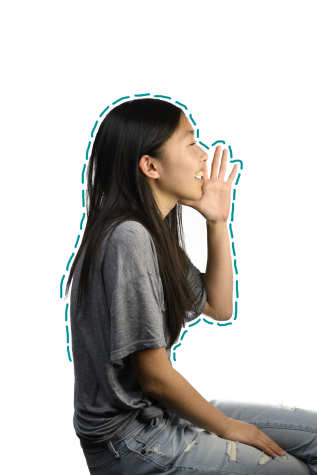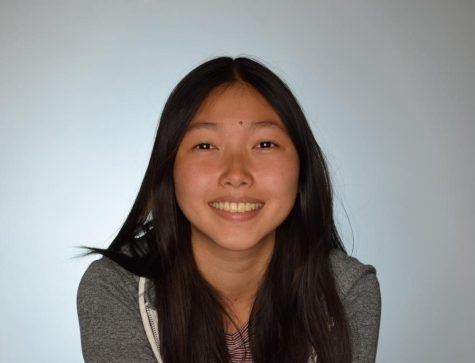Hear me out
May 23, 2018
 Quiet. If anyone had asked me to describe myself a couple years ago, my answer would have been automatic: quiet. That was my identity. The one who never talks in class. The one who never acts silly in front of others. The one who never argues. The quiet girl.
Quiet. If anyone had asked me to describe myself a couple years ago, my answer would have been automatic: quiet. That was my identity. The one who never talks in class. The one who never acts silly in front of others. The one who never argues. The quiet girl.
For a long time, I despised how shy I was. How my face would ripen like a tomato when someone I barely knew greeted me across the hallways. How my tongue would get caught between my teeth as I attempted public speaking. How my legs would shake when I was called on during class.
I used to blame my upbringing. As an only child with two introverted parents, I never stood a chance. My parents never yelled at me and I didn’t have any siblings to argue with, so silence was normal for me, maybe even comfortable. It wasn’t my fault that I never had the opportunity to become loud and outgoing.
When high school came around and teachers began to grade based on participation, I blamed society. No one advocates for the quiet people, I thought. Everyone always wants you to be outspoken and loud. They don’t understand how your throat seems to close up. They don’t understand how as much as you want to speak, anxiety tugs your words back down and churns them in your stomach.
With every fishbowl discussion, the familiar shaking of my legs and pain in my lungs would appear. But along with that, there was that voice in my head that said it was okay to be quiet. It was society’s fault for pushing these standards. There was nothing wrong with being quiet.
Until that point, my reserved personality had never hurt anyone. Teachers didn’t seem to mind my introversion, I wouldn’t get into arguments easily and I was known as a good student. I thought I could just continue through life being known as the quiet girl. The one who always listens respectfully. The one who doesn’t argue. The quiet one.
But all of that changed within the first few weeks of joining journalism. I had forgotten to add another staff member’s name to the byline for helping me report on a story. It wouldn’t have mattered if my editor hadn’t praised me in front of the entire staff for my reporting, the reporting that someone else had done. My eyes widened and I searched for her amidst the sound of applause that was making my heart beat even louder. Her eyes met mine and for a second I thought, she would speak up. She would tell them that she did that part of the reporting, not me. But she just looked back down, a tinge of sadness on her face. My hand left my lap and I opened my mouth to speak, but I hesitated. I tried again, but it was too late — we were already moving on.
The second there was a break in class, I rushed to her and apologized, the familiar redness of my cheeks engulfing me as my tongue tripped on every word. She smiled and told me it was fine, but the look of disappointment was still on her face as I walked away. I messaged my editor the truth and added her name to the article, but I knew my moment to make things right had passed. In that moment, I couldn’t blame my upbringing. I couldn’t blame society. I could only blame myself.
Ironically, I joined journalism with the notion that there was no need for me to learn to speak up since I could just convey myself through written words. With words, I had power. I could give a voice to the voiceless, those who couldn’t speak up just like me. But then I thought, how could I do that if I didn’t even have a voice?
It was in that moment that I decided I couldn’t stay hidden in my familiar identity any longer. Whether it was asking a question during class or raising my volume a little higher during a speech, I worked to talk more.
Little by little, the trudge to the front of the room seemed less like a hike up Mount Everest and more like walking on a trail. And with that feeling came another one that I had never felt before. It was only a faint whisper, but it was still there: confidence. Up until then, I had never felt the freedom to speak without fear.
Before I leave high school, I want to fulfill the mission that drove me into journalism in the first place: to give a voice to the voiceless. So to those who struggle with public speaking, to those who fear group discussions, to the quiet ones: there will come a day when you cannot ignore the words that are piling up in your throat just waiting to come out. When you know that if you don’t say something, no one will. And I know it’s hard. But the only thing worse than feeling the fear in your chest is knowing that you could have made a difference if you had just decided to speak. And all you can do is blame yourself for not trying hard enough, for not being strong enough. So I urge you not to let this fear consume you any longer. Don’t be the quiet one. Let your words come out. The world will thank you for it.

















